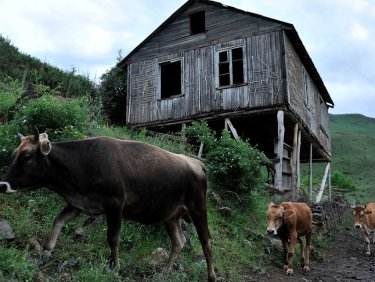Context
The South Caucasus is strongly influenced by its post-Soviet past. Poverty and hopelessness are especially acute in rural areas. People are migrating to the cities or abroad, thereby creating considerable dependence on money remittancesfrom migrant workers. In addition, the “frozen” conflicts in Georgia are a strain on relations between South Ossetia and Abkhazia and the ethnic groups living there. Furthermore, for over 30 years now Armenia has been witnessing armed conflict around the Nagorno-Karabakh region, which again claimed several lives in the autumn of 2020. Transforming the conflict is being rendered difficult by its instrumentalisation for domestic political purposes, entrenched opinions and rampant nationalism. The upshot is very little visible progress. In addition to armed conflicts, the South Caucasus is also regularly affected by natural disasters such as earthquakes, flooding and drought. On the one hand, economic development is very unevenly distributed and on the other, it is limited mainly to urban areas. The HEKS/EPER programme in the South Caucasus therefore focuses on rural areas.
